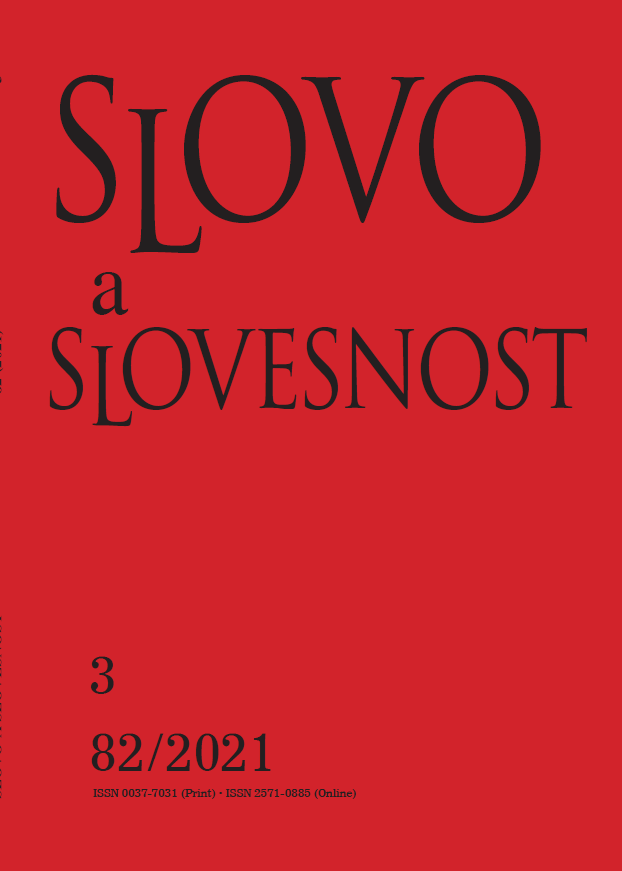K presupozici předchozího (stejného/podobného) děje u prefigátů s ,při-‘ a ,pře-‘
On the presupposition of a preceding (identical/similar) action implied by Czech prefixed verbs with ‘při-’ and ‘pře-’
Author(s): Luboš Veselý, Vojtěch VeselýSubject(s): Western Slavic Languages
Published by: AV ČR - Akademie věd České republiky - Ústav pro jazyk český
Keywords: presupposition; semantic presupposition; pragmatic presupposition; mutational verbs; prefixed verbs
Summary/Abstract: The study deals with prefixed verbs with ‘při-’ and ‘pře-’ which imply a preceding action, namely one identical or similar to the action denoted by a given verb (přisladit čaj ‘sweeten tea (a little more)’; převážit rybu ‘reweigh a fish’). The paper addresses these questions: 1) What factors cause the implication of a preceding action to be perceived with varying strength for different verbs? 2) Does the meaning of a preceding action belong to the realm of semantics or pragmatics? The following findings are formulated: 1) Strength of the implication is affected by the amount of resemblance of the implied action to the action directly denoted: if two identical actions with identical result are concerned (přeočkovat dítě ‘revaccinate a child’) the implication is strong. If the verb expresses a change of state (přeformulovat text ‘reformulate a text’) the implication is weaker. 2) The character of the implied meaning is also a factor: if the implication is strongly determined by pragmatics (přisolit ‘add (more) salt’) it is merely loosely associated with the verb. If the implication is not dependent on pragmatics (převážit kapra ‘reweigh a carp’) it seems to be part of the lexical meaning and is strong.
Journal: Slovo a slovesnost
- Issue Year: 82/2021
- Issue No: 3
- Page Range: 232-248
- Page Count: 17
- Language: Czech

